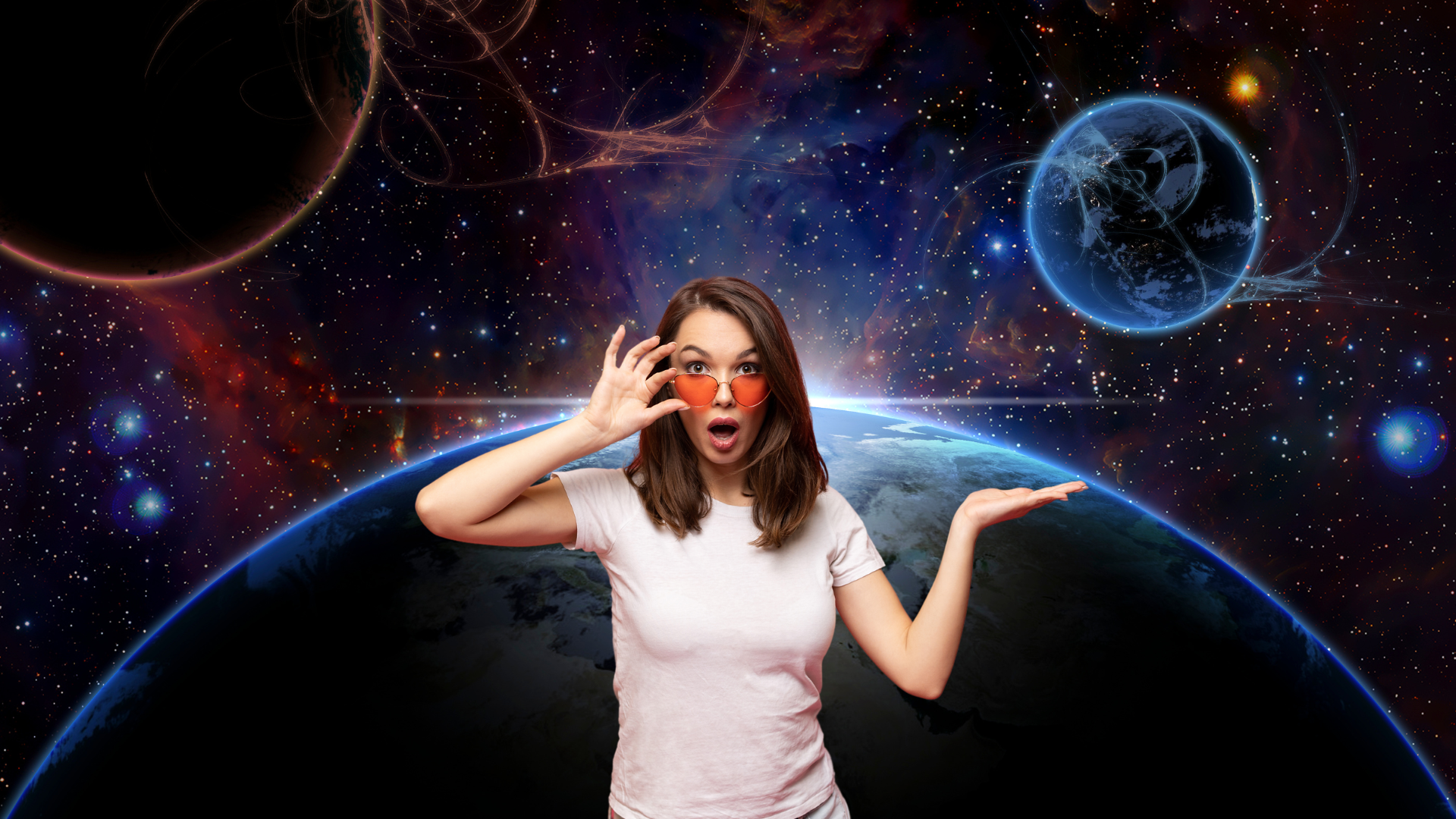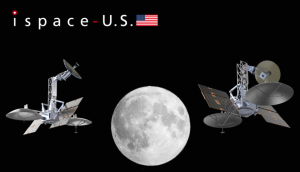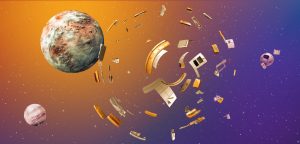Space Events in July in the UK
30th Jun 2023
It’s the first full month of summer, and Orbital Today is thrilled to present you with an exclusive lineup of enlightening space events and conferences happening in the UK. Whether you’re eager to polish your astrophotography prowess, dive into the inspiring world of women in STEM, or engage in fiery discussions about extraterrestrial life, we’ve got you covered. Our carefully curated list of captivating space events in July in the UK is a must-explore.
Time is of the essence, so hurry up to book your spot!
Unveiling the Universe’s Darkest Secrets
When: 3 July
Where: Cardiff University Centre for Student Life Park Place Cardiff CF10 3BB United Kingdom
When we think of black holes, we often think of them as endless hoovers, sucking up anything around them. In reality though, it’s very difficult to grow a black hole; to get matter close enough to that point of no return. Instead, most matter will orbit a black hole. Just like the Earth orbits the Sun, the Sun orbits a supermassive black hole at the centre of the Milky Way over 4 million times more massive than the Sun itself. So if it’s difficult to grow a black hole, how in the Universe did supermassive black holes like this get so big? Now, you know where to find out.
A Beginners Guide to the Universe: Nebula
When: 3 July
Where: Whitelee Windfarm Visitor Centre Moor Road Eaglesham G76 0QQ United Kingdom
Learn all about how the Universe was created and how nebulae formed from the early years of the Universe and go on to create galaxies. You’ll even make your own nebula in this workshop using paints and glitter.
Women in Science: Space Tour
When: 4 July
Where: Natural History Museum Cromwell Road London SW7 5BD United Kingdom
Take a guided tour of the first-floor Hintze Hall balconies and Minerals Gallery and hear the gripping stories of the female scientists whose contributions changed our understanding of space. Encounter numerous treasures, including rare meteorites, as you learn about the research of female space scientists past and present, including some who’ve worked at the Museum. Discover more about the displays, the cutting-edge science, and space research the museum is doing.
Celebration Space
When: 6 July
Where: Cardiff University Centre for Student Life Park Place Cardiff CF10 3BB United Kingdom
An evening of celebration of space astronomy for adults and children, with an art exhibition from professional artists and school students, activities and exhibits from the UK astronomy community, 3D cinema, children’s storytelling, and a panel discussion with authors, journalists and artists how space and astronomy benefit wider society.
Dr. Jim Green lecture: “Commercial space and science: can they co-exist?”
When: 6 July
Where: Mathematical Institute, University of Oxford Woodstock Road Oxford OX2 6GG United Kingdom
Dr Jim Green was NASA Chief Scientist from May 2018 to January 2022, a period in which NASA continued to pioneer space science whilst also transitioning the US space sector into a new phase of commercial development. He will share his unique perspective on ground-breaking science missions, exploring our solar system and beyond, alongside the rise of SpaceX, Blue Origin, Axiom and other new space companies, transforming launch, space stations and future lunar missions through the Artemis accord.
Wisdom of the Stars – Annual Sophia Centre Conference
When: 8-9 July
Where: University of Wales Trinity Saint David College Street College Street Lampeter SA48 7ED United Kingdom
Since earliest recorded history and, in all cultures from cave art creators to space telescope builders, the stars, planets and other celestial bodies have functioned as sources of knowledge about the world or the individual, the future (and past and present), the nature of the universe and concepts of the divine. They have performed this function through magic, divination, astrology, poetry, music and the visual arts, modern science and science fiction.
A Beginners Guide to the Universe: Earth
When: 11 July
Where: Whitelee Windfarm Visitor Centre Moor Road Eaglesham G76 0QQ United Kingdom
Learn all about what makes up the Earth. How it was formed? How did we get our Moon? What’s under our crust and how does the inner core protect us from all sorts of dangers from space? You’ll also look at how the make-up of Earth creates volcanoes and earthquakes. Finally, there will be an Earth-related craft.
An introduction to cosmic inflation
When: 13 July
Where: The Royal Institution 21 Albemarle Street London W1S 4BS United Kingdom
For years, there has been a broad consensus in the cosmology community that the “hot big bang” accurately describes the history of the our Universe since it was less than a few seconds old. But the question remains, what came before the hot big bang?
Join astronomer David Mulryne as he delves into the limitations of our current thinking and sheds light on the questions that remain unanswered. According to the hot big bang model, the Universe grew from a hot dense state, and ultimately in this model an “initial singularity” from which time is measured. However, we only have direct evidence of what happened from when the Universe was a second or so old, and the events prior are still open to debate. Using the very latest findings and insights from the field of cosmology, David explores the leading ideas for what happened before this time, focusing on the theory of cosmic inflation as well as alternative ideas of the Universe’s origin.
A Talk from the Orpington Astronomical Society
When: 14 July
Where: Farningham Village Hall High Street Farningham DA4 0DH United Kingdom
Think you know about space and the universe? It may be weirder than you imagine! The talk will challenge the audience to be able to open their mind as to the vastness of the universe and the wonders of how it works. Are you star dust? Come and find out. Accompanied by a dynamic PowerPoint presentation with many colorful slides and animations. There will be “no maths or equations but some VERY big numbers”.
KIDSLitFest – The Wonder of the Universe
When: 22 July
Where: Harrington Building Adelphi Street Preston PR1 7BE United Kingdom
Ever thought about building your own spaceship? Or how you’d talk to aliens? How about simply looking up at the sky and understanding a little of what’s going on in the vast cosmos? Dom Conlon is a poet and author whose fascination with the wonder of the universe has led him to exploring those questions and writing the Meet Matilda books. He will guide you through stars, planets, and galaxies to measure great distances, and ask what it means to be human.
Beyond the Milkyway: VR Experience narrated by Brian Cox
When: 24 July
Where: The Royal Institution of Great Britain 21 Albemarle Street London W1S 4BS United Kingdom
Deep in the western Australian outback, over 131,000 separate antennas are being built to work together as one giant radio telescope, giving us the power to visit the far corners of the Universe and break new ground in astronomical research.
When completed, the incredible Square Kilometre Array (SKA) telescope will be a virtual time machine, allowing us to see further back in time than ever before to understand how our Universe came to be, and giving humanity its best-ever chance of discovering if there is other life out there.
Now you can experience “one of the most significant international scientific endeavors in history” as you step onto the future site of the SKA telescope – and then travel to the furthest reaches of the Universe – in an immersive 360-degree virtual reality cinema experience.
A Beginners Guide to the Universe: Gravity
When: 27 July
Where: Whitelee Windfarm Visitor Centre Moor Road Eaglesham G76 0QQ United Kingdom
In this workshop, you’ll discuss gravity. How it keeps us stuck on the ground and what’s actually happening. How planets orbit the way they do and how we can use gravity to our advantage. You’ll also look at the most dangerous thing in the universe. Born from extreme gravitational forces: Black Holes! How they are formed and what do they do. There will also be a craft relating to these Black Holes.
A Beginners Guide to the Universe: Genius
When: 31 July
Where: Whitelee Windfarm Visitor Centre Moor Road Eaglesham G76 0QQ United Kingdom
From the Ancient Greeks to the scientists of the Renaissance, all the way to the astronomers during the late 1800s. You’ll find out how Eratosthenes in 240 BC worked out the circumference of the Earth with sticks and shadows. How Galileo helped us understand our Solar System in the 1600s. Finally, you’ll discuss the work of Annie Jump Cannon and how she categorized the stars in the night sky.
You’ll examine their work and celebrate their genius for without their shoulders to stand on we wouldn’t able see as far into the universe.
The realms of science and space are brimming with enigmas, marvels, and opportunities for growth that we are thrilled to embark upon together. Come, hop on this extraordinary journey, and broaden the boundaries of your own universe!






Thank you for your comment! It will be visible on the site after moderation.